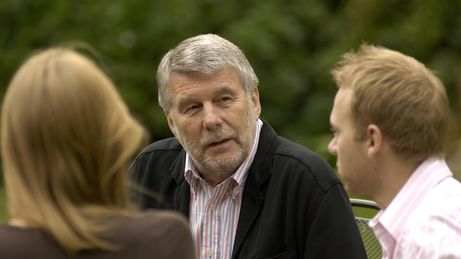
The Provost of the Gates Cambridge Trust, Professor Barry Everitt, is among 106 outstanding researchers to be elected as a member of one of the most prestigious life sciences organisations in Europe this week.
The Provost of the Gates Cambridge Trust, Professor Barry Everitt, is among 106 outstanding researchers to be elected as a member of one of the most prestigious life sciences organisations in Europe this week.
It is the first time that neuroscientists in general and behavioural neuroscientists in particular, have been elected to EMBO. The organisation is made up of more than 1,500 leading researchers and promotes excellence in the life sciences. Its major goals are to support talented researchers at all stages of their careers, stimulate the exchange of scientific information and help build a European research environment where scientists can achieve their best work.
EMBO says it has decided to strategically expand the scope of its membership on the occasion of its 50th anniversary to honour the progress that has been made in the fields of neuroscience and ecology & evolution. Fifty of the 106 new members are scientists who have made “exceptional contributions” in these areas.
“For the 50th anniversary of EMBO we are extremely pleased to welcome significantly more researchers to our membership than in previous years,” EMBO Director Maria Leptin said. “In the past decades, many of the concepts, techniques and insights of molecular biology have been applied to fundamental questions in other disciplines of the life sciences. Molecular explanations are now emerging for the origins and functions of complex systems like the brain and the living world around us. We wanted to reflect more of these exciting developments in our membership.”
Leptin added: “Great leaps in scientific progress often arise when fundamental approaches like molecular biology are applied to previously unconsidered or emerging disciplines. Looking forward, we want to ensure that all communities of the life sciences benefit from this type of cross-pollination.”
EMBO members provide suggestions and feedback on the activities of EMBO, serve on selection committees for EMBO programmes and mentor young scientists.
Professor Everitt’s research, which has won him many awards, including most recently the prestigious Fondation Ipsen prize, is in the general area of behavioural neuroscience and is concerned with the neural and psychological mechanisms underlying learning, memory and motivation. His major research focus is the neuropsychology of drug addiction. He has been President of the British Association for Psychopharmacology, the European Brain and Behaviour Society and the European Behavioural Pharmacology Society. He served as Editor-in-Chief of the European Journal of Neuroscience and is currently a reviewing editor for Science.












